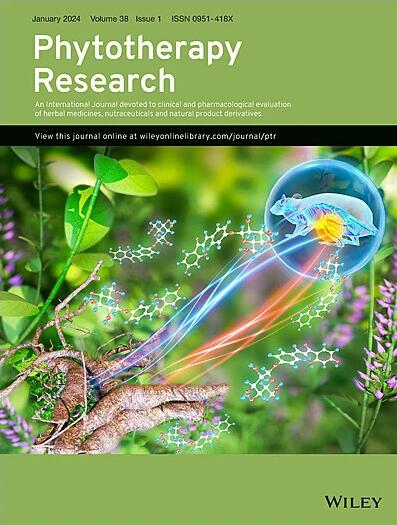Procyanidin B1 Promotes PSMC3‐NRF2 Ubiquitination to Induce Ferroptosis in Glioblastoma
IF 6.1
2区 医学
Q1 CHEMISTRY, MEDICINAL
引用次数: 0
Abstract
NRF2 signaling is a crucial antioxidant defense mechanism against ferroptosis in tumors, and targeting NRF2 is essential for tumor therapy. However, the effectiveness of NRF2 inhibitors remains unexplored. The active ingredients of traditional Chinese medicine serve as important sources of NRF2 inhibitors. In this study, we established an intracranial glioblastoma (GBM) orthotopic model and observed the effects of procyanidin B1 on tumor growth and ferroptosis. Using protein‐small‐molecule docking, z‐stack assay of laser confocal imaging, surface plasmon resonance assay, immunoprecipitation, mass spectrometry, and western blotting, we detected the binding between procyanidin B1 and NRF2 and the effect of PSMC3 on the ubiquitin‐dependent degradation of NRF2 in GBM cells. Our results showed that procyanidin B1 acted as a novel NRF2 inhibitor to suppress GBM cell proliferation and prolonged the survival of GBM‐bearing mice; it also mediated the interaction between PSMC3 and NRF2 to promote ubiquitin‐dependent protein degradation of NRF2, which induced ferroptosis in GBM cells. In addition, we found that procyanidin B1 enhanced H₂O₂ accumulation by downregulating NRF2 during ferroptosis in GBM cells. The botanical agent procyanidin B1 induced ferroptosis and exerted anti‐tumor effects through PSMC3‐mediated ubiquitin‐dependent degradation of NRF2 proteins, providing a potential drug candidate for adjuvant therapy in patients with GBM.原花青素 B1 促进 PSMC3-NRF2 泛素化,诱导胶质母细胞瘤中的铁变态反应
NRF2信号传导是肿瘤中对抗铁变态反应的重要抗氧化防御机制,靶向NRF2对肿瘤治疗至关重要。然而,NRF2 抑制剂的有效性仍有待探索。传统中药的有效成分是 NRF2 抑制剂的重要来源。在这项研究中,我们建立了颅内胶质母细胞瘤(GBM)正位模型,并观察了原花青素B1对肿瘤生长和铁变态反应的影响。通过蛋白质-小分子对接、激光共聚焦成像的z-stack分析、表面等离子体共振分析、免疫沉淀、质谱分析和Western印迹等方法,我们检测了原花青素B1和NRF2之间的结合以及PSMC3对GBM细胞中NRF2泛素依赖性降解的影响。结果表明,原花青素B1是一种新型的NRF2抑制剂,能抑制GBM细胞的增殖,延长GBM小鼠的存活时间;它还能介导PSMC3和NRF2之间的相互作用,促进NRF2的泛素依赖性蛋白降解,从而诱导GBM细胞的铁变态反应。此外,我们还发现原花青素 B1 在 GBM 细胞的铁突变过程中通过下调 NRF2 来增强 H₂O₂ 的积累。植物药原花青素 B1 通过 PSMC3 介导的泛素依赖性降解 NRF2 蛋白,诱导铁突变并发挥抗肿瘤作用,为 GBM 患者的辅助治疗提供了潜在的候选药物。
本文章由计算机程序翻译,如有差异,请以英文原文为准。
求助全文
约1分钟内获得全文
求助全文
来源期刊

Phytotherapy Research
医学-药学
CiteScore
12.80
自引率
5.60%
发文量
325
审稿时长
2.6 months
期刊介绍:
Phytotherapy Research is an internationally recognized pharmacological journal that serves as a trailblazing resource for biochemists, pharmacologists, and toxicologists. We strive to disseminate groundbreaking research on medicinal plants, pushing the boundaries of knowledge and understanding in this field.
Our primary focus areas encompass pharmacology, toxicology, and the clinical applications of herbs and natural products in medicine. We actively encourage submissions on the effects of commonly consumed food ingredients and standardized plant extracts. We welcome a range of contributions including original research papers, review articles, and letters.
By providing a platform for the latest developments and discoveries in phytotherapy, we aim to support the advancement of scientific knowledge and contribute to the improvement of modern medicine.
 求助内容:
求助内容: 应助结果提醒方式:
应助结果提醒方式:


